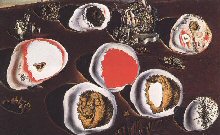Pew Internet released a report on Social Isolation and New Technology contradicting previous studies on the subject:
This Pew Internet Personal Networks and Community survey finds that Americans are not as isolated as has been previously reported. People’s use of the mobile phone and the internet is associated with larger and more diverse discussion networks. And, when we examine people’s full personal network – their strong and weak ties – internet use in general and use of social networking services such as Facebook in particular are associated with more diverse social networks.
I also think that Facebook users have real-life connections as well, but since Facebook has spread massively, my feeling is that the pre-existing real-life relationships are being sucked into Facebook too.
In the beginning, TV used to show and describe reality, and people would talk about what happened on TV. Starting around 20 years ago, I noticed that TV talked more and more about what happened on TV itself in a self-referencing way. I saw that mostly through other peoples’ TV sets since I don’t own a set myself. Seeing TV only rarely makes me more aware of the macro-changes. At a certain point, TV didn’t just show and talk about reality any more, but made reality itself, which was then commented upon by TV itself and by other media.
The Net followed a similar but slightly different path. A few years ago, the Net was limited to a small percentage of the population and it was immediately self-referential, encouraged by the easy mechanism of the link system.
Then, as social networks spread, people populated Facebook and similar sites. Recently, I noticed that real-life conversations got more into “what happened on Facebook” and this in itself fuelled the growth of the social network itself. People didn’t want to feel “left out” so they flocked to Facebook. Suddenly, people would feel left out if they weren’t present on the Net and in its happenings, more than if they weren’t present in face-to-face meetings.
The Net got priority. Without it, many real meetings can’t happen anymore as they are organized as Facebook events. Since we spend more and more time online, without the Net, we could even become short of arguments in our real-life conversations.
Many people into technology welcome the interaction between the Net and real life, seeing that as something which balances both and which takes the Net out of a cage. The problem is that the process of digitalization of reality is quite greedy and tends to incorporate every aspect of reality, absorbing the wholeness of reality starting from the mental level, representing it digitally as if everything could be translated into bytes. So in the end, reality becomes sucked into the Net, which has to be lifestreamed or lifelogged in order to become realized. Reality can be considered real only when can become digitalized.
Un recente rapporto di Pew Internet sull’isolamento sociale e le nuove tecnologie sembra contraddire le precedenti indagini sulla materia.
Questo studio di Pew Internet Personal Network and Community sostiene che gli americani non sono così isolati come pareva dalle precedenti ricerche. L’uso del telefono cellulare e della Rete porta ad allargare e diversificare le reti di discussione, e quando esaminiamo le reti personali – con i loro legami più o meno forti – vediamo che l’uso dell’Internet, in generale, e la partecipazione a social networks come Facebook, in particolare, portano allo stabilirsi di differenti ambiti sociali di relazione.
Anch’io ritengo che gli utenti di Facebook abbiano rapporti umani nella vita reale ma, data la diffusione massiccia di Facebook, ho la sensazione che le preesistenti relazioni della vita reale tendano a farsi risucchiare in Facebook.
Un tempo la televisione proponeva descrizioni della realtà, e le persone discutevano di ciò che avevano visto sul teleschermo. Da una ventina d’anni, ho notato, le televisioni hanno cominciato a parlare sempre più di sé, in maniera autoreferenziale. La mia fonte sono gli apparecchi degli altri, perché io non ne possiedo uno. Guardare la televisione di rado mi rende più consapevole dei grandi cambiamenti. A un certo punto, invece di far vedere e commentare la realtà, la televisione ha cominciato a creare essa stessa una realtà, e a commentarla insieme agli altri mezzi di comunicazione.
La Rete ha seguito un percorso analogo, sebbene lievemente diverso. Qualche anno fa era ancora appannaggio di una ristretta percentuale di popolazione ed era autoreferenziale da subito, grazie anche al facile meccanismo dei link.
Poi con la diffusione delle comunità virtuali la gente si è riversata su Facebook e su altri siti del genere. Ultimamente ho osservato sempre più spesso persone intente a parlare di «cosa succede su Facebook»: un fenomeno che incrementa ulteriormente la crescita della comunità virtuale stessa. Nessuno vuole essere tagliato fuori, così tutti si accalcano in Facebook. Ci si sente più emarginati a non essere presenti in Rete che a non avere incontri reali.
La Rete è diventata prioritaria. Addirittura certi eventi della vita reale senza di essa non esiterebbero, poiché vengono organizzati come «eventi di Facebook». A causa del gran tempo trascorso online, senza la Rete ci si sentirebbe a corto di argomenti nelle conversazioni vis-à-vis.
Molti esperti delle nuove tecnologie apprezzano l’interazione fra Rete e vita reale, convinti che così si crei un equilibrio tra i due campi, facendo uscire la Rete dalla sua gabbia. Il problema è che la digitalizzazione della realtà è un processo onnivoro che tende a incorporare ogni aspetto della vita, assorbendo la totalità della realtà partendo dal livello mentale, rappresentandolo come se ogni cosa potesse essere tradotta in bytes. Così, in definitiva, la realtà viene risucchiata dalla Rete e, per poter real-izzarsi, deve essere archiviata con le tecniche di lifelogging. La realtà può viene considerata reale solo nel momento in cui può avere una realtà digitale.


